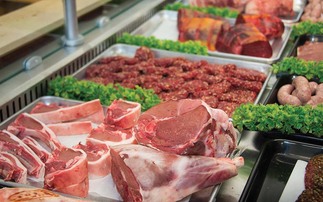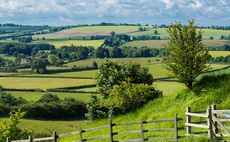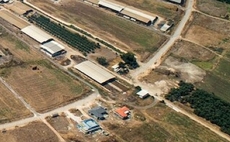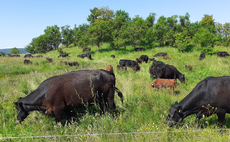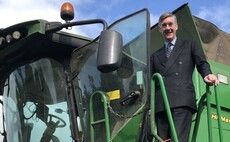
RBST chief executive Christopher Price said the appeal of native breeds in farm diversififcation 'should not be overlooked'
The phasing out of BPS has underlined why a diversified income is so important to farm resilience.
For farmers looking at opening farm shops, cafes or restaurants as part of their farming operation, native breed livestock can be a natural fit.
See also: Helping the UKs native breeds a 'fitting tribute'
A key reason why farming with native breeds lends itself particularly well to these types of diversification because the selling points of native breed meat and dairy products support the appeal of on-farm restaurants, cafes and farm shops to their customers.
Native breeds contribute to the independent, high quality and local experience that customers enjoy by eating or shopping on a farm.
See also: RBST celebrates 50 years
Native breed meats and cheeses are known for their high quality and taste, with different breeds producing their own distinctive flavours and textures.
As well as supporting a local business by using a farm shop or restaurant, customers have the opportunity to support the local breed and enjoy the cultural experience of eating the breeds which have been reared on those fields and nourished local people for centuries.
See also: Herefordshire farm family reaps fruits of diversification
The appeal of eating native breed meat extends to consumer concern for the environment and animal welfare too.
Native breeds are generally bred in extensive, low-input systems with the whole animal often being used, so they appeal to the growing number of consumers looking to ‘eat less but better meat'.
See also: Sheep farmers need to think of consumers when diversifying
There are great examples of native breed produce featuring as the jewel of successful farm shops, cafes and restaurants across the UK.
In Cornwall, The Market farm shop at Trevaskis Farm is renowned for its award-winning, home-reared British Lop pork and native South Devon beef.
Like the farm's shop, the Trevaskis Farm restaurant has been running for 30 years and has earned a fantastic reputation thanks in no small part to the native breed meat celebrated in its menu.
See also: The importance of inclusion in diversification at a farm in Swansea
At the other end of the UK, East Fortune Farm in East Lothian is a diversified farm which includes the Brand Family Larder farm shop.
The shop stocks much of the farm's own produce including rare British Saddleback pork and native Hampshire Down lamb.
See also: Public urged to taste the variety of UK sheep breeds
The farm conveys great sustainability messages, supports rare breeds and works collaboratively with other local producers.
Each of these farms has capitalised on the high quality and strong story of the native breeds they farm to further increase the appeal of their farm shops and restaurants.
As diversifications such as these become increasingly important to farms' incomes and resilience, the native breed opportunity should not be overlooked.












